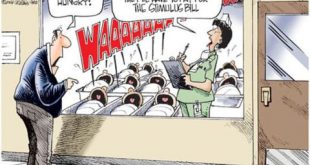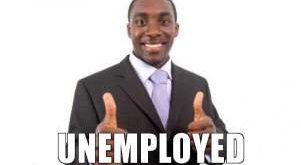I didn’t tell you last time that the disposition effect result I discussed suffered from a potential econometric problem, so I make up for that here. As usual, you can see the whole behavioral economics playlist here in case you want to catch up or need a review.
Read More »Lucas’ Copernican revolution — nonsense on stilts
Lucas’ Copernican revolution — nonsense on stilts In Michel De Vroey’s version of the history of macroeconomics, Robert Lucas’ declaration of the need for macroeconomics to be pursued only within ‘equilibrium discipline’ and declaring equilibrium to exist as a postulate, is hailed as a ‘Copernican revolution.’ Equilibrium is not to be considered something that characterises real economies, but rather ‘a property of the way we look at things.’ De Vroey —...
Read More »Microfoundations — contestable incoherence
Microfoundations — contestable incoherence Defenders of microfoundations and its rational expectations equipped representative agent’s intertemporal optimization often argue as if sticking with simple representative agent macroeconomic models doesn’t impart a bias to the analysis. I unequivocally reject that unsubstantiated view, and have given the reasons why here. These defenders often also maintain that there are no methodologically coherent...
Read More »Ramen is displacing tobacco as most popular US prison currency, study finds
So the internet seems pretty much obsessed with this story right about now… The headline, taken at face value, isn’t particularly surprising to economists- we are quick to point out that a pretty wide variety of items can count as “money”, provided that they perform a few functions: A medium of exchange A unit of account A store of value By this characterization, sure, ramen could serve as money- I guess ramen packs aren’t so large as to be too cumbersome to be traded, you could quote...
Read More »Robert Lucas’ warped methodology
Robert Lucas’ warped methodology Economic theory, like anthropology, ‘works’ by studying societies which are in some relevant sense simpler or more primitive than our own, in the hope either that relations that are important but hidden in our society will be laid bare in simpler ones, or that concrete evidence can be discovered for possibilities which are open to us which are without precedent in our own history. Unlike anthropologists, however, economists...
Read More »What was Robert Barro smoking when he came up with ‘Ricardian equivalence’?
[embedded content] Ricardian equivalence basically means that financing government expenditures through taxes or debts is equivalent, since debt financing must be repaid with interest, and agents — equipped with rational expectations — would only increase savings in order to be able to pay the higher taxes in the future, thus leaving total expenditures unchanged. Why? In the standard neoclassical consumption model — used in DSGE macroeconomic modeling — people are basically...
Read More »Bank stress testing — not particularly helpful
Bank stress testing — not particularly helpful [embedded content]
Read More »Keynes-Hicks macrotheory — a ‘New Keynesian’ unicorn fantasy
Keynes-Hicks macrotheory — a ‘New Keynesian’ unicorn fantasy Paul Krugman has in numerous posts on his blog tried to defend “the whole enterprise of Keynes/Hicks macroeconomic theory” and especially his own somewhat idiosyncratic version of IS-LM. The main problem is simpliciter that there is no such thing as a Keynes-Hicks macroeconomic theory! So, let us get some things straight. There is nothing in the post-General Theory writings of Keynes that suggests...
Read More »Steve Keen, Noah Smith and heterodox ‘anti-math’ economics
Responding to the critique of his Bloomberg View post on heterodox economics and its alleged anti-math position, Noah Smith approvingly cites Steve Keen telling us there is a wing of heterodox economics that is anti-mathematical. Known as “Critical Realism” and centred on the work of Tony Lawson at Cambridge UK, it attributes the failings of economics to the use of mathematics itself… Although yours truly appreciate much of Steve Keen’s debunking of mainstream economics, on...
Read More »De Vroey’s Chicago style History of Macroeconomics
De Vroey’s Chicago style History of Macroeconomics A couple of years ago Michel De Vroey felt the urge to write a defense of Robert Lucas’ denial of involuntary unemployment: What explains the difficulty of constructing a theory of involuntary unemployment? Is it, as argued by Lucas, that the “thing” to be explained doesn’t exist, or is it due to some deeply embedded premise of economic theory? My own view tilts towards the latter. Economic theory is...
Read More » Heterodox
Heterodox







